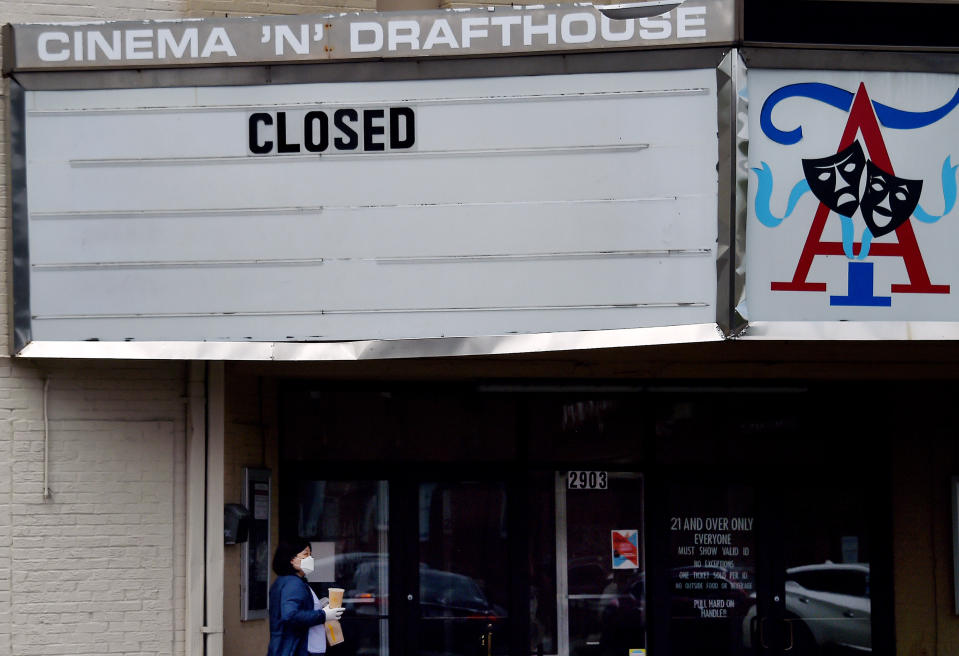Coronavirus payouts to top $100B in biggest ever non-life insurance event: Lloyd’s CEO
The coronavirus pandemic has had a dramatic effect on the insurance industry. So far, insurance market Lloyd’s of London estimates that the industry will pay out $100 billion — yet another “unprecedented” number during this crisis. Lloyd’s itself has been on the hook for $1.3 billion.
John Neal, CEO of Lloyd’s of London, highlighted the economic implications to the insurance industry in an interview with Yahoo Finance’s On the Move. The company isn’t an insurance company per se, but rather an insurance and reinsurance marketplace with many underwriters who share and spread the risk.
“The economic impact is so significant — the likes of which we’ve never seen in the industry,” Neal said. “We estimated that the claims payouts will total close to $100 billion, more than [Hurricane] Katrina and more than Harvey and Maria. It’s the single largest event the non-life insurance industry has ever encountered.”
Financially, this is making the insurance industry sweat. At the same time as big claims come up for payouts, the stock market has been volatile, with lows 30% down from February, though some of the loss has been mitigated by strong government response.
For Lloyd’s, the “good” news, Neal said, is that the company is well capitalized, holding 200% of its payout requirements on-hand.
“We’ve very comfortable that [our reserves] can fulfill their obligations to customers today,” he said.
The Lloyd’s CEO said he sees others in the insurance industry far less capitalized and in weaker positions to deal with the large payouts associated with the crisis, and that further down the line, there could be some trouble.
"Like every other industry, some will struggle to succeed through this and we'll see some M&A activity," he said. "As we look back in a year or two, some businesses will struggle as a result of the pandemic crisis.”
A wave of frustrated businesses
The pandemic has caused an ever-growing wave of event cancelations, many of which build upon each other like vendors for canceled conferences.
But Neal said many businesses that have business interruption insurance aren’t covered. “We all feel frustrated at the moment that the majority of people who have a formal business interruption cover, they don't have the extensions that deal with pandemic insurance or some denial of access cover,” he said. “We estimated roughly 30% of our claims’ costs would come from those types of covers.”
This is why, Neal continued, governments around the world have stepped in.
This enormous gap has led Lloyd’s to reevaluate how to deal with pandemics in the future.

“How do we deal with these types of events and avoiding government bailouts left, right, and center, and how do we think about the complexity of the next ‘Black Swan’ event that comes our way,” Neal said.
Other events are coming down the pipeline, Neal noted: Hurricane season is coming. But that, and event cancellations are far easier for companies like Lloyd’s to deal with than pandemics. The company put out an idea, called Recover Re, to potentially deal with a long-term difficult crisis like a pandemic that may have short-term spikes of hardship.
“When you have an event that runs over such a period of time and may come back and come back, how do you provide insurance cover?” Neal said.
The answer, he said, is to go ultra-long-term.
“Maybe for the first time we’ll need to issue 15- or 20-year insurance policies to protect against a pandemic,” he said. “That way an insurance company can step up today knowing that the short-term impact can be difficult but they’ve got some longer-term considerations if the policy is enforced for 10 years or more.”
Neal said Lloyd’s is trying to put forward more creative ideas to deal with this crisis.
“We’ve never seen the type of impact that the pandemic has caused on all aspects of our cover and balance sheet,” he said.
--
Ethan Wolff-Mann is a writer at Yahoo Finance focusing on consumer issues, personal finance, retail, airlines, and more. Follow him on Twitter @ewolffmann.
Insurance premiums expected to rise 4% to 6%, before factoring in COVID
High-yield savings banks finally hit by the Fed's coronavirus rate cut
The US may be undercounting COVID-19 cases by a massive margin: Goldman Sachs
Why Amazon, Facebook, Disney saw their chiefs retake control
Why the unemployment rate could be 5 percentage points higher
Frontier Airlines adopts and quickly rescinds $39 to $89 fee for social distancing
Follow Yahoo Finance on Twitter, Facebook, Instagram, Flipboard, LinkedIn, and YouTube

 Yahoo Finance
Yahoo Finance 